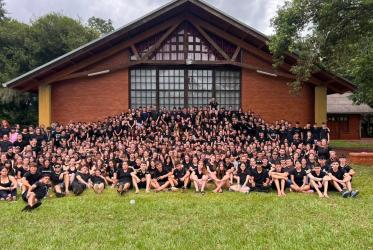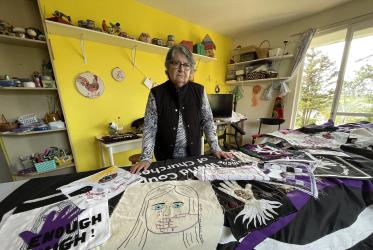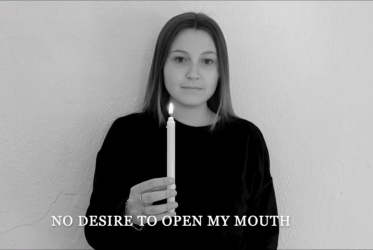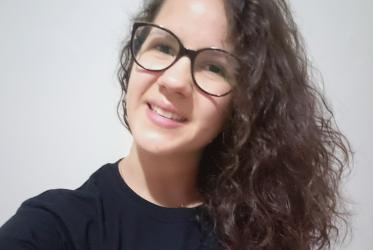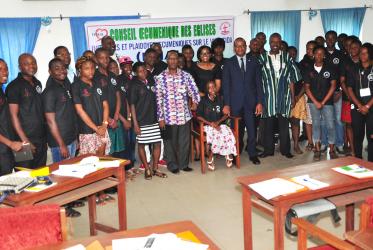Displaying 1 - 20 of 25
Women in Argentina walk in solidarity with women of Afghanistan
23 September 2021
COVID-19 in conflict zones: “a crisis within another crisis”
27 November 2020
Young people in Togo: “Hear our voice! We want to tell our stories!”
07 November 2019
Larissa Aguiar Garcia: "We're opening a safe space”
26 September 2019
Knowledge of gender roles deepens in Togo
03 June 2019
WCC calls for peace in Colombia
09 February 2018
In Argentina, stirring journey for human rights continues
01 September 2017
A safe space for sinners to change and for pain to be shared
03 August 2017
Youth engagement fundamental to HIV response
18 April 2017

